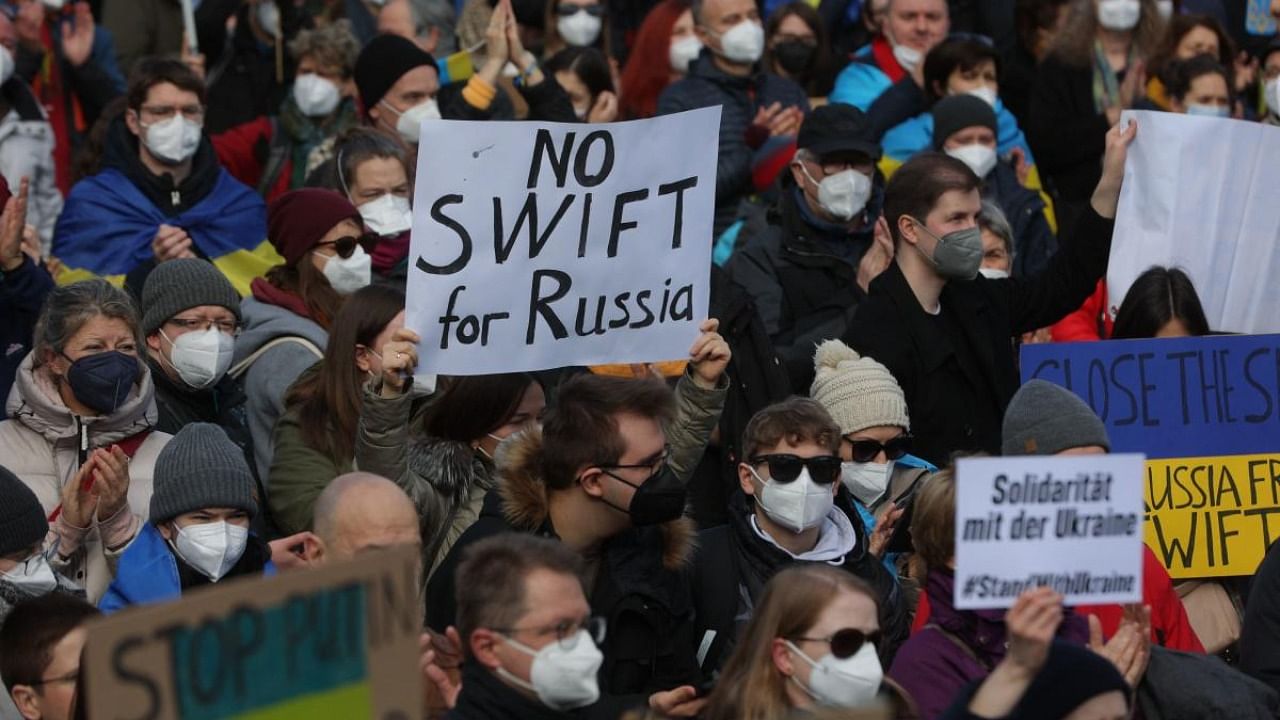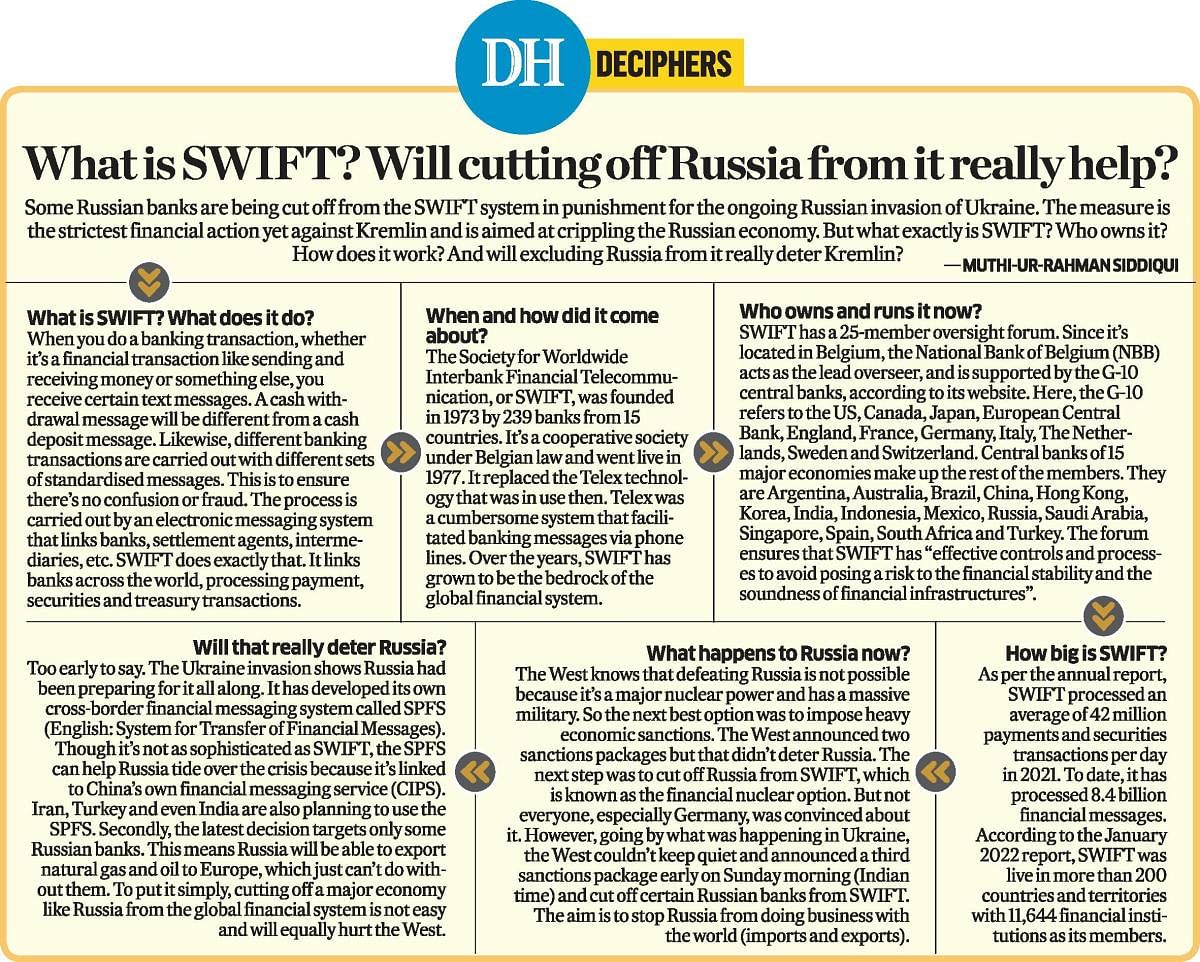

Some Russian banks are being cut off from the SWIFT system in punishment for the ongoing Russian invasion of Ukraine. The measure is the strictest financial action yet against Kremlin and is aimed at crippling the Russian economy. But what exactly is SWIFT? Who owns it? How does it work? And will excluding Russia from it really deter Kremlin?
What is SWIFT? What does it do?
When you do a banking transaction, whether it's a financial transaction like sending and receiving money or something else, you receive certain text messages. A cash withdrawal message will be different from a cash deposit message. Likewise, different banking transactions are carried out with different sets of standardised messages. This is to ensure there's no confusion or fraud. The process is carried out by an electronic messaging system that links banks, settlement agents, intermediaries, etc. SWIFT does exactly that. It links banks across the world, processing payment, securities and treasury transactions.
When and how did it come about?
The Society for Worldwide Interbank Financial Telecommunication, or SWIFT, was founded in 1973 by 239 banks from 15 countries. It's a cooperative society under Belgian law and went live in 1977. It replaced the Telex technology that was in use then. Telex was a cumbersome system that facilitated banking messages via phone lines. Over the years, SWIFT has grown to be the bedrock of the global financial system.
Who owns and runs it now?
SWIFT has a 25-member oversight forum. Since it's located in Belgium, the National Bank of Belgium (NBB) acts as the lead overseer, and is supported by the G-10 central banks, according to its website. Here, the G-10 refers to the US, Canada, Japan, European Central Bank, England, France, Germany, Italy, The Netherlands, Sweden and Switzerland. Central banks of 15 major economies make up the rest of the members. They are Argentina, Australia, Brazil, China, Hong Kong, India, Indonesia, Korea, Mexico, Russia, Saudi Arabia, Singapore, Spain, South Africa and Turkey.
The forum ensures that SWIFT has "effective controls and processes to avoid posing a risk to the financial stability and the soundness of financial infrastructures".
How big is SWIFT?
As per the annual report, SWIFT processed an average of 42 million payments and securities transactions per day in 2021. To date, it has processed 8.4 billion financial messages. According to the January 2022 report, SWIFT was live in more than 200 countries and territories with 11,644 financial institutions as its members.
What happens to Russia now?
The West knows that defeating Russia is not possible because it's a major nuclear power and has a massive military. So the next best option was to impose heavy economic sanctions. The West announced two sanctions packages but that didn't deter Russia. The next step was to cut off Russia from SWIFT, which is known as the financial nuclear option. But not everyone, especially Germany, was convinced about it. However, going by what was happening in Ukraine, the West couldn't keep quiet and announced a third sanctions package early on Sunday morning (Indian time) and cut off certain Russian banks from SWIFT. The aim is to stop Russia from doing business with the world (imports and exports).
Will that really deter Russia?
Too early to say. The Ukraine invasion shows Russia had been preparing for it all along. It has developed its own cross-border financial messaging system called SPFS (English: System for Transfer of Financial Messages). Though it's not as sophisticated as SWIFT, the SPFS can help Russia tide over the crisis because it's linked to China's own financial messaging service (CIPS). Iran, Turkey and even India are also planning to use the SPFS. Secondly, the latest decision targets only some Russian banks. This means Russia will be able to export natural gas and oil to Europe, which just can't do without them. To put it simply, cutting off a major economy like Russia from the global financial system is not easy and will equally hurt the West.